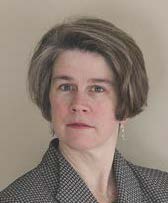MODELING LONG DISTANCE TRAVEL IN AN AGE OF GLOBAL MOBILITY
Pacific Southwest Region University Transportation Center

University of Vermont
Despite decades of calls for better and more comprehensive demand models of long-distance and intercity travel, most researchers and practitioners remain largely focused on daily travel within home regions. The more sophisticated models, often driven by household activity pattern data, are used to simulate multimodal trip tours within our large metropolitan regions, while arrivals and pass-through traffic from out-of-region and out-of-country are only considered as aggregate exogenous factors. Long-distance travel in the United States is estimated to include more than 2.6 billion trips annually and to potentially comprise more than 30% of person miles of travel. Its importance will only increase as US mega-regions grow and both interstate highway and airport congestion continue to escalate.
This seminar will reflect on the historic context and motivators of long-distance travel and how 21st century telecommunication and transportation systems have increased mobility. The seminar will draw on a range of unique data sources, including a one-year online panel survey and mobile phone traces. Our findings illustrate long-distance tour complexity: 1) mixed purposes between stops as well as at individual stops occurred in 14% of tours; 2) spatial complexity including multiple chained stops as well as out-and-back from a hub other than home occurred in 20% of tours accounting for 46% of the miles; and 3) different primary modes on different legs of the long-distance tours were used in 11% of cases. Total long-distance trips rates, air trip rates and leisure trips rates are lower for African Americans and Hispanics, people without college degrees, and those with lower household incomes. These results point to inequity in access and mobility but also a skewed distribution of the carbon emissions across the population for long-distance travel.
Understanding and forecasting long-distance travel is important for infrastructure, economy, equity, and environment. Our research findings are critical to informing meaningful data collection to move forward towards national and global travel forecasting models. In an age of increasing reliance on passive mobile data sources, there remains a strong argument to complement “big data” with traditional household travel surveys for advancing models of long-distance intercity passenger travel.
Dr. Lisa Aultman-Hall is a Professor of Civil and Environmental Engineering at the University of Vermont. Her research focuses on collection of innovative data to study long distance travel, tailpipe emissions, and bicycling as well as modeling system resiliency especially as it relates to planning for climate adaptation. Dr. Aultman-Hall is active with the Transportation Research Board of the National Academies including a task force on national travel data needs and recently starting a new subcommittee on inter-city travel. Dr. Aultman-Hall is one of the Associate Directors of the National Center for Sustainable Transportation a USDOT UTC led by the University of California Davis. She is a Visiting Scholar at UC Davis this year.